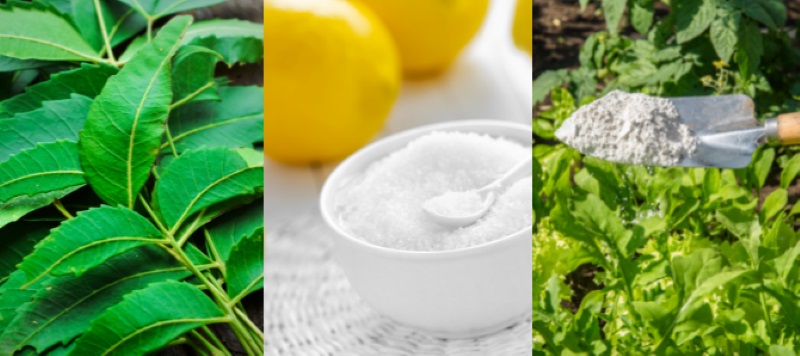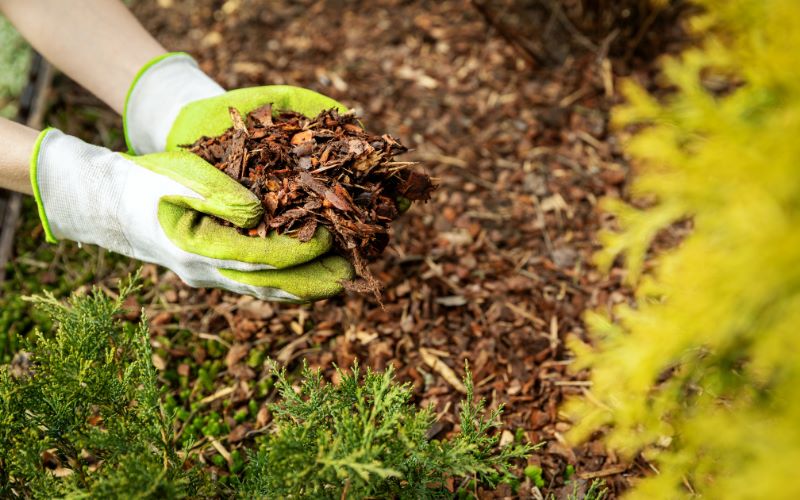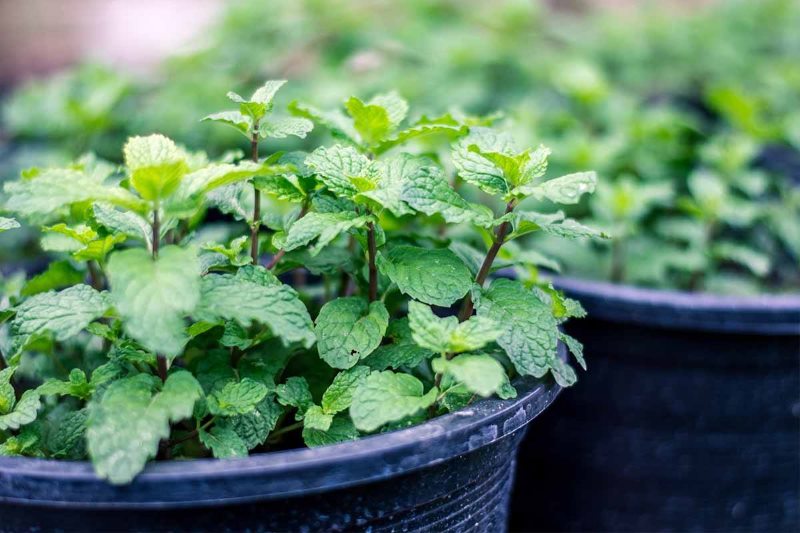1. Beneficial Insects

Introducing beneficial insects, like ladybugs and lacewings, into your garden is an effective natural pest control method. These insects feed on common garden pests such as aphids and mites. For example, ladybugs can consume large numbers of aphids, helping to protect plants without the use of harmful chemicals. This method is not only natural but also promotes biodiversity in your garden.
2. Companion Planting

Companion planting involves growing certain plants together that naturally repel pests or attract beneficial insects. For instance, marigolds emit a scent that deters nematodes and other garden pests, making them a great companion for vegetables. Similarly, planting basil near tomatoes can repel flies and mosquitoes. This method not only reduces pest infestations but also enhances garden health and yield.
3. Diatomaceous Earth

Diatomaceous earth, a powder made from fossilized algae, is an effective natural pest control substance. When sprinkled around areas where pests are a problem, it causes dehydration in insects like ants and fleas by absorbing the oils and fats from their exoskeletons. This method is non-toxic to humans and pets, making it ideal for indoor and outdoor use.
4. Neem Oil

Neem oil, derived from the neem tree, is a natural insecticide that is safe for use in gardens. It works by disrupting the life cycle of pests, preventing them from growing into adults. Neem oil is effective against a variety of garden pests, including caterpillars and aphids, and also helps in controlling fungal diseases. Its application is simple and doesn’t harm beneficial insects or plants.
5. Physical Barriers

Physical barriers, such as nets, fences, and floating row covers, provide a straightforward way to keep pests out. For example, garden nets can protect fruit trees from birds, while row covers prevent insects from reaching vegetable plants. These barriers are a simple yet effective method for protecting plants from a wide range of pests without using any chemicals.


















